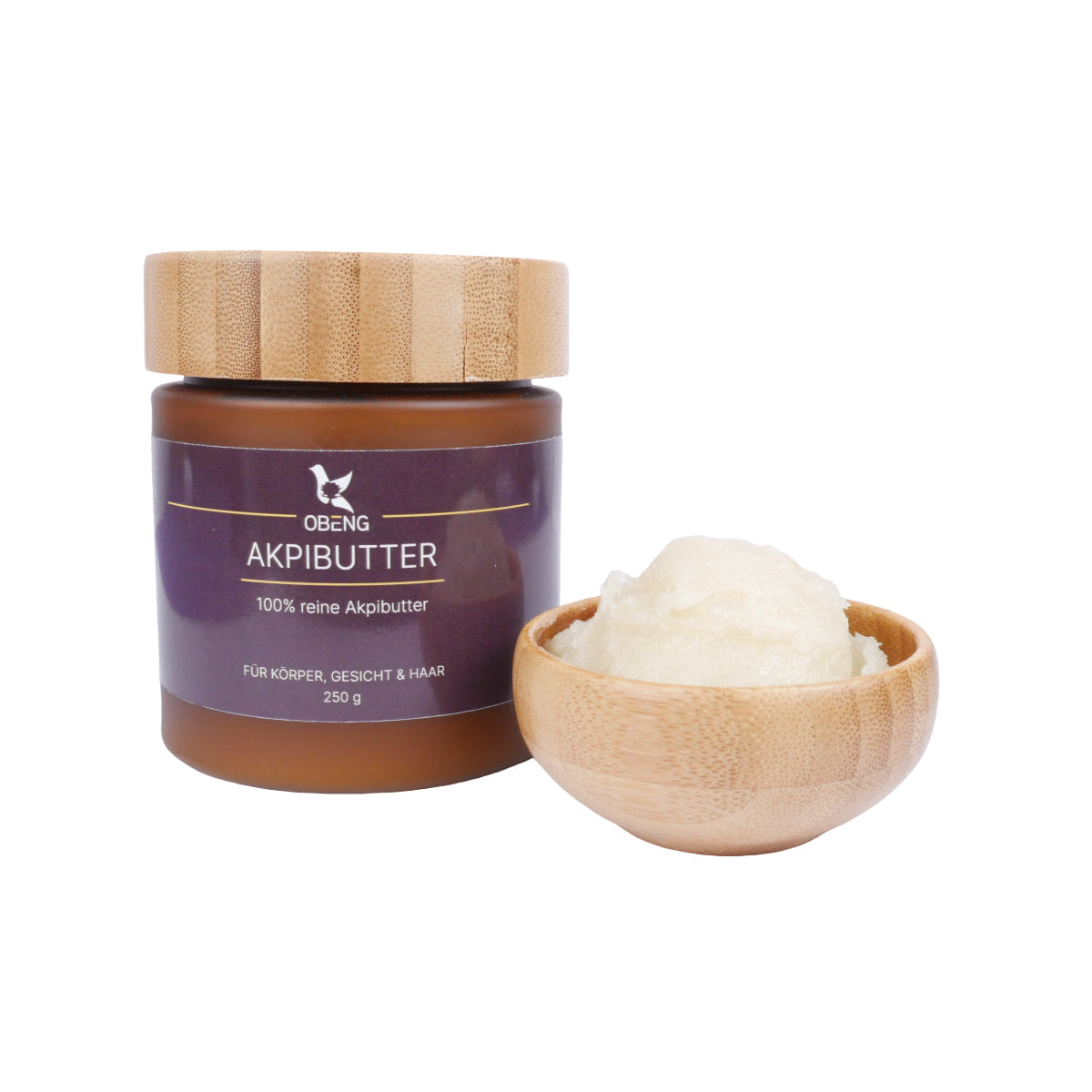OBENG
Akpi butter, Djansang butter
Akpi butter, Djansang butter
Akpi butter / Djansang butter: West Africa's beauty secret
Discover nutrient-rich Akpi butter, also known as Djansang butter, from West Africa. This natural product, rich in fatty acids and vitamins, offers intensive care for skin and hair and is a versatile addition to your beauty routine.
Regular price
€9,99 EUR
Regular price
Sale price
€9,99 EUR
Unit price
per
Tax included.
Shipping calculated at checkout.
Couldn't load pickup availability
Ingredients
Ingredients



Product description
Further information
Use
Use
Sample recipe
Important instructions



